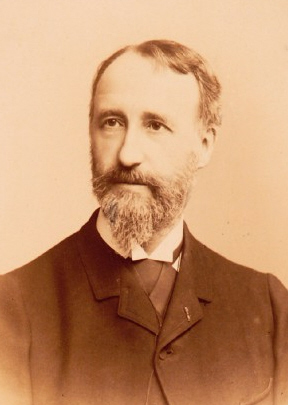Théodore Dubois[테오도르 뒤부아]
화성·대위법·초견연주법에 관한 논문으로 유명하다.
랭스에 있는 가톨릭 교회의 오르간 연주자에게 음악을 배웠으며, 파리 국립음악원에서 공부했다. 1871년 세자르 프랑크의 뒤를 이어 생클로틸드 성당의 오르간 연주자가 되었고, 1868년 마들렌 성당의 성가대 지휘자가 되었으며, 그후 카미유 생상스의 뒤를 이어 그곳의 오르간 연주자가 되었다.
파리 국립음악원에서 화성법을 가르쳤으며(1871~90) 그후 원장으로 일했다(1896~1905). 오페라, 합창곡, 관현악 작품을 비롯하여 모든 장르의 곡을 썼고 뛰어난 작품으로는 오라토리오 〈그리스도의 7가지 말씀
Les sept parole du Christ〉(1867)을 들 수 있다.
Théodore Dubois was born in Rosnay in Marne. He studied first under Louis Fanart (the choirmaster at Reims Cathedral) and later at the Paris Conservatoire under Ambroise Thomas. He won the Prix de Rome in 1861. In 1868, he became choirmaster at the Church of the Madeleine, and in 1871 took over from César Franck as choirmaster at the Basilica of Sainte-Clotilde. In 1877, Dubois returned to the Church of the Madeleine, succeeding Camille Saint-Saëns as organist there. From 1871 he taught at the Paris Conservatoire, where his pupils included Pierre de Bréville, Guillaume Couture, Gabrielle Ferrari, Gustave Doret, Paul Dukas, Achille Fortier, Xavier Leroux, Albéric Magnard, Édouard Risler, Guy Ropartz, Spyridon Samaras, and Florent Schmitt. (See: List of music students by teacher: C to F#Théodore Dubois.)
Dubois was director of the Conservatoire from 1896 (succeeding Thomas upon the latter's death) to 1905. He resigned two months before the refusal to award the Prix de Rome to Maurice Ravel; this created, nonetheless, a substantial public outcry against him, which was increased by an open letter from the novelist and musicologist Romain Rolland. Gabriel Fauré took over from Dubois as director.
Although he wrote many religious works, Dubois had considerable hopes for a successful career on the operatic stage. His fascination with Near-Eastern subjects led to the composition to his first staged work, La guzla de l'émir, and his first four-act opera, Aben-Hamet, which broke no new ground. His other large-scale opera, Xavière, is a wildly dramatic tale set in the rural Auvergne. The story revolves around a widowed mother who plots to kill her daughter, Xavière, with the help of her fiancé's father to gain the daughter's inheritance. However, Xavière survives the attack with the help of a priest, and the opera finishes with a conventional happy ending.
The music of Dubois also includes ballets, oratorios and three symphonies. His best known work is the oratorio Les sept paroles du Christ ("The Seven Last Words of Christ" [1867]), which continues to be given an occasional airing; his Toccata in G (1889), for the organ, is a recital staple, by no means solely in France. The rest of his large output has almost entirely disappeared from view. He has had a more lasting influence in teaching, with his theoretical works Traité de contrepoint et de fugue (on counterpoint and fugue) and Traité d'harmonie théorique et pratique (on harmony) still being sometimes used today.
'♣ 음악 감상실 ♣ > [1820년 ~1839년]' 카테고리의 다른 글
| [폴란드]Władysław Żeleński (0) | 2018.10.30 |
|---|---|
| [독일]Georg Eduard Goltermann (0) | 2018.08.18 |
| [플랑드르]Peter Benoit (0) | 2017.09.28 |
| [체코]Vilém Blodek (0) | 2017.08.26 |
| [체코]Karel Bendl (0) | 2017.08.26 |

